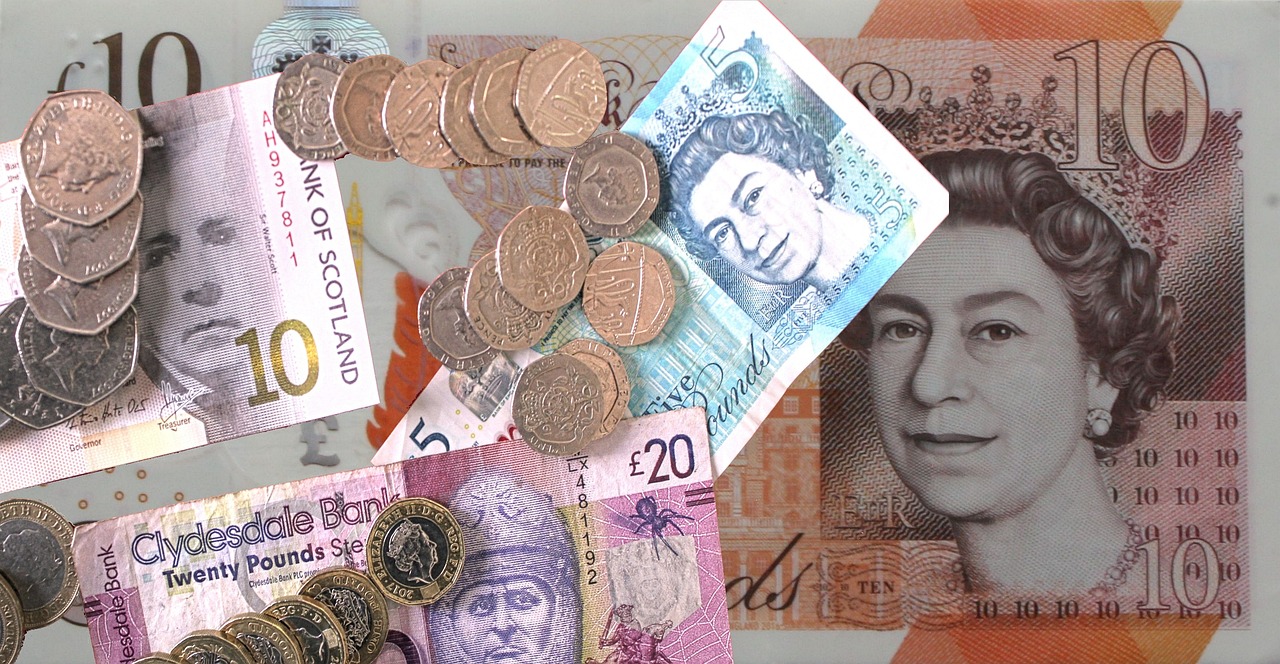Maximizing USD to Baht Exchange: Key Insights on Limits, Fees, Inflation, and Seasonal Fluctuations
GPT_Global - 2025-10-23 15:30:45.0 81
What is the maximum amount of US dollars I can exchange for baht in one transaction in Thailand?
When sending money to Thailand, one key consideration is the maximum amount of US dollars you can exchange for baht in a single transaction. The Thai government has set regulations on currency exchange to prevent illegal activities, such as money laundering. Typically, the maximum amount for exchanging foreign currency, like US dollars, to Thai baht in one transaction is 50,000 USD. However, this can vary depending on the exchange service or financial institution you use.
For individuals planning to exchange large sums, it’s important to be aware that transactions over a certain limit may require additional documentation, such as proof of the source of funds. This requirement ensures compliance with Thailand’s strict financial regulations.
If you're looking to send money through a remittance service, it’s wise to check with your provider about the specific limits and any documentation required for large transfers. Many services offer competitive exchange rates, and some may even allow for higher limits with proper verification. Understanding these rules will help ensure a smooth transaction and avoid unnecessary delays.

Are there any restrictions on exchanging US dollars for Thai baht in Thailand?
When considering remittances to Thailand, many wonder if there are restrictions on exchanging US dollars for Thai baht. The good news is that there are no strict limits on exchanging foreign currencies like US dollars in Thailand. However, certain regulations apply to ensure smooth transactions.
First, foreign currency exchanges are generally conducted at licensed exchange offices, banks, and even at airports, where you can easily swap your US dollars for Thai baht. It's important to note that the exchange rates may vary depending on where you choose to exchange your money, so it’s advisable to shop around for the best rates.
Additionally, for larger amounts, Thai authorities may require documentation such as your passport to confirm your identity. For remittance businesses, ensuring compliance with local regulations is key. Businesses should also be aware of anti-money laundering policies that could affect the exchange process.
In conclusion, while exchanging US dollars for Thai baht in Thailand is relatively straightforward, both individuals and remittance businesses should remain mindful of local financial regulations. Working with a reputable service ensures a smooth and efficient currency exchange experience.
How does inflation in Thailand affect the exchange rate between US dollars and Thai baht?
Inflation plays a crucial role in determining the exchange rate between currencies. In Thailand, inflation can significantly affect the value of the Thai baht against the US dollar. When inflation in Thailand rises, it typically leads to a decrease in the purchasing power of the baht, making it weaker relative to other currencies like the US dollar.
For businesses involved in remittance, this fluctuation in exchange rates can directly impact the amount received by recipients in Thailand. When the baht weakens due to inflation, the sender might find that their USD remittance translates to fewer baht, resulting in a reduced value for the recipient. This can affect the overall financial planning of both senders and receivers, making it essential to keep an eye on inflation rates.
On the other hand, if inflation in Thailand is controlled, it can help stabilize the exchange rate, benefiting both remittance businesses and recipients. To manage these fluctuations, remittance services often offer options to lock in exchange rates or monitor market trends closely to provide the best service to their customers.
How can I avoid being charged extra fees when exchanging US dollars for Thai baht abroad?
Exchanging US dollars for Thai baht while traveling or sending remittances abroad can come with extra fees if you're not careful. To avoid these charges, follow these simple tips.
Firstly, choose a reliable remittance service with competitive exchange rates. Look for companies that offer transparent pricing without hidden fees. Some services provide the option to lock in rates ahead of time, which can save you money.
Secondly, avoid exchanging money at airports or hotels, as they tend to have higher fees. Instead, use local banks or authorized money exchange outlets with lower service charges.
Additionally, consider using digital remittance services. Many online platforms offer better exchange rates and lower fees than traditional brick-and-mortar locations. They also allow you to send funds directly to bank accounts in Thailand without additional costs.
Finally, always check the exchange rate offered before making any transactions to ensure you’re getting the best deal. With these strategies, you can avoid extra fees when exchanging US dollars for Thai baht.
Does the USD to baht conversion rate vary depending on the city in Thailand?
The USD to baht conversion rate generally does not vary depending on the city in Thailand. However, some factors can influence slight differences in exchange rates between regions. Major cities like Bangkok may offer slightly better rates compared to smaller cities due to a higher concentration of exchange services and international transactions.
For remittance businesses, it’s crucial to keep in mind that while the rates may not drastically change by location, transaction fees can vary. Larger cities often have more competitive pricing for these fees, while remote areas may charge higher fees due to limited access to foreign exchange services.
Additionally, fluctuations in the USD to baht rate can occur based on global financial trends, meaning exchange rates might change on a national scale rather than at a city level. For anyone sending money to Thailand, it’s advisable to compare exchange rates and fees across different platforms to ensure the best deal, whether sending funds to Bangkok, Chiang Mai, or Pattaya.
What is the best method to convert USD to baht for large amounts of money?
When transferring large amounts of money, choosing the best method to convert USD to Baht is crucial for saving on fees and ensuring favorable exchange rates. Many remittance businesses offer various services, but some methods stand out for their reliability and cost-effectiveness.
One of the best options is using a specialized money transfer service that offers competitive exchange rates and lower transaction fees. These services often provide online platforms that allow you to track the conversion process in real-time, ensuring transparency and control over your funds.
Another option is to use a bank-to-bank transfer through a trusted international bank. While this method can be secure, it's essential to compare the exchange rate and any additional fees, as some banks may charge higher fees for international transfers. Make sure to shop around for the most favorable rate before making your decision.
For large sums, it’s also worth considering cryptocurrency as a bridge currency for transfers, although this may not be suitable for everyone due to its volatility. Regardless of the method, always ensure that you’re getting the best possible rate to make your transfer as cost-effective as possible.
How does the Thai government regulate the exchange rate between the US dollar and the baht?
The Thai government plays an important role in regulating the exchange rate between the US dollar and the Thai baht, ensuring economic stability and promoting trade. Thailand's central bank, the Bank of Thailand (BOT), oversees this process by using various tools such as interest rate adjustments, foreign currency reserves, and interventions in the foreign exchange market. These measures help control excessive fluctuations in the baht's value, which could impact inflation and the overall economy.
For businesses in the remittance sector, the exchange rate is crucial as it directly affects the value of money being sent across borders. The BOT typically employs a managed float system, allowing the baht to fluctuate within a set range while stepping in when necessary to avoid extreme movements. This system provides predictability and confidence for both businesses and individuals engaged in international money transfers.
Understanding how the Thai government manages the exchange rate can help remittance businesses navigate currency fluctuations and optimize their operations. By staying informed on governmental policies, these businesses can better serve their clients, especially those who regularly send or receive money between Thailand and other countries.
How much does 1 US dollar convert to in Thai baht during peak tourist seasons?
During Thailand’s peak tourist seasons, the value of the Thai baht (THB) against the US dollar (USD) often fluctuates due to increased travel demand and economic activity. Typically, 1 US dollar converts to around 35 to 37 Thai baht, though this rate can vary depending on global market trends, local tourism income, and central bank policies. Travelers and expatriates should monitor exchange rate movements closely to maximize their remittance value.
For individuals sending money to Thailand, using a reliable remittance service is crucial. Competitive exchange rates and low transfer fees can make a big difference when converting USD to THB. Online money transfer platforms often offer better rates compared to traditional banks, helping users get more baht for every dollar sent. It’s also advisable to check for real-time rate updates during high tourism seasons.
Choosing the right remittance provider ensures that your funds reach family, friends, or business partners efficiently. Whether you are supporting loved ones or investing in Thailand’s thriving tourism and hospitality sectors, understanding USD to THB conversion trends helps you save more and send smarter. Stay informed, compare rates, and make your remittance work harder for you during every tourist peak.
About Panda Remit
Panda Remit is committed to providing global users with more convenient, safe, reliable, and affordable online cross-border remittance services。
International remittance services from more than 30 countries/regions around the world are now available: including Japan, Hong Kong, Europe, the United States, Australia, and other markets, and are recognized and trusted by millions of users around the world.
Visit Panda Remit Official Website or Download PandaRemit App, to learn more about remittance info.



